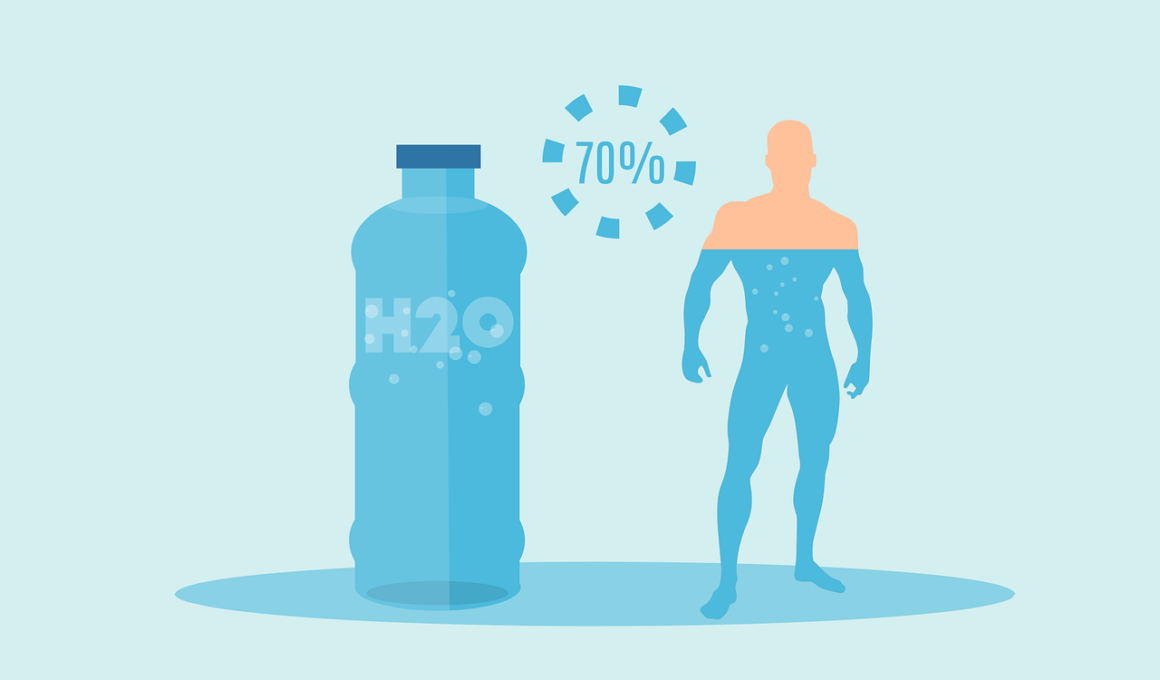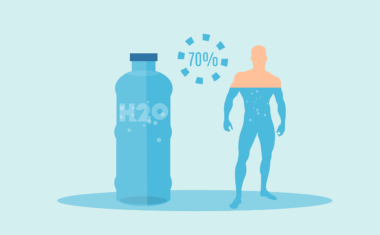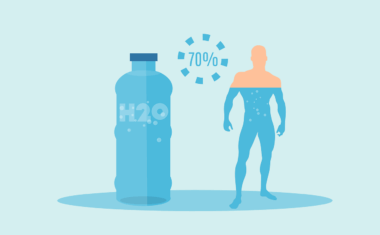The Role of Hydration in Preventing Football Injuries
Football players are often at risk for injuries, and proper hydration plays a crucial role in reducing that risk. Dehydration can lead to muscle cramps, fatigue, and diminished performance on the field. Leading experts recommend athletes drink water consistently throughout the day, rather than consuming large quantities just before a game. In hot or humid conditions, the need for fluids increases, emphasizing the importance of a hydration strategy. Players should also account for the length of training sessions and games when planning their fluid intake. Adequate hydration before, during, and after activity can significantly lower the chances of injury. Moreover, thirst is often not a reliable indicator of hydration levels, so proactive measures should be taken. Monitoring urine color can offer insights into hydration status; ideally, it should be pale yellow. Additionally, players should familiarize themselves with their specific hydration needs to optimize performance and wellbeing. Key hydration tips include setting reminders to drink, carrying a water bottle, and adopting a hydration schedule that fits individual activity levels and personal needs. Following these principles will create a solid foundation for any athlete’s health and resilience against injuries.
Hydration Strategies for Football Players
Implementing effective hydration strategies is essential for any football player looking to maintain peak performance. Individual hydration needs can vary based on body size, metabolic rate, and environmental factors. A well-rounded approach includes water, electrolyte solutions, and hydrating foods. Players should aim to consume fluids before training, during breaks, and after practice sessions. Incorporating drinks with electrolytes helps restore vital minerals lost through sweat, preventing dehydration and electrolyte imbalances. Sports drinks can be beneficial in this regard, as they replenish lost nutrients while providing energy for high-intensity activities. An additional consideration is to gauge fluid loss during activity; weighing oneself before and after is a simple way to determine how much fluid needs to be replaced. A loss of even 2% of body weight can impair performance. Establishing a hydration plan allows athletes to prepare adequately for intense sessions or competition days. Consuming fruits and vegetables with high water content, like watermelon, oranges, and cucumbers, can supplement hydration. Athletes must stay committed to their hydration strategy, especially during long practices or tournaments, to foster optimal physical and psychological performance on the field.
Education concerning hydration is vital for athletes of all levels. Coaches, trainers, and players themselves should prioritize understanding the impact of dehydration on performance and injury risk. Different sports have varying hydration demands, with football being particularly intense. Training staff should provide resources and workshops focused on hydration practices and their effects on health. Additionally, players should familiarize themselves with signs of dehydration, such as dizziness, dry mouth, or dark urine. Knowing these indicators allows athletes to address hydration needs promptly. It’s also beneficial to create a culture where hydration is prioritized. Teams can introduce hydration stations around practice areas, ensuring access to fluids at all times. Sharing knowledge among peers can contribute to a shared responsibility for hydration. Having team challenges that encourage everyone to drink enough water each day can also boost morale. This fosters an environment where hydration becomes ingrained in the team ethos. Engaging individuals using portable devices that track fluid intake can facilitate accountability. As an athlete, understanding that hydration is a performance pillar enhances efforts in injury prevention strategy and overall wellbeing in the game.
Hydration can influence not only physical aspects but also mental clarity during matches. The brain relies on proper fluid levels to function optimally, affecting concentration and decision-making skills essential for success in football. Studies demonstrate that dehydration impairs cognitive function, including tasks requiring attention, coordination, and reaction time. Players must safeguard against this by prioritizing hydration during preparation. It’s crucial for athletes to consume adequate fluids before matches to ensure that they are mentally sharp and physically prepared. Furthermore, fatigue resulting from dehydration can lead to risky plays and inadvertent injuries. Establishing drinking schedules that include water and electrolytes will help maintain energy and focus. Educating players about the mental impact of hydration fosters informed decisions about their drinking habits. Coaches should emphasize the connection between cognitive performance and hydration during training. In high-pressure match situations, maintaining hydration can offer a competitive edge. The integration of mental and physical hydration strategies into training regimens empowers athletes and equates healthier habits with longer careers. By committing to these practices, players are better equipped to perform at their best while minimizing injury risks during critical moments in games.
The Role of Nutrition in Hydration
Understanding the relationship between nutrition and hydration is crucial for football players seeking to enhance their performance. Certain foods play a significant role in maintaining adequate hydration levels alongside fluid intake. Consuming meals enriched with fruits, vegetables, lean proteins, and healthy fats contributes to overall hydration. Nutrient-dense foods provide essential vitamins and minerals that support cellular function, helping with efficient fluid balance. Hydrating foods like grapes, oranges, and soup provide moisture while offering nourishment. Football players should balance their hydration strategies with nutritional intake to optimize performance. For example, its ideal to consume meals with healthy carbohydrates several hours before rigorous activity while ensuring sufficient fluid consumption. The body’s needs do change depending on the activity and environment, emphasizing that hydration and nutrition should be synchronized for peak performance. Incorporating a variety of foods ensures that players receive adequate nutrition alongside hydration. Moreover, establishing a routine that includes meals with high water content strategically around training times can improve recovery and energy levels. Fueling the body with proper nutrition will support hydration efforts and overall performance, thus reducing the likelihood of injuries, and in turn improving longevity in football athletes.
Monitoring hydration status should include an understanding of individual fluid needs for players of various positions. Different positions may experience dehydration differently based on playing time, intensity, and activity level. Understanding these variations can guide personalized hydration strategies. Sports scientists recommend athletes develop individualized hydration plans based on weight, sweat rate, and environmental conditions. Conducting regular assessments during training ensures players drink enough and foresee complications arising from heat or fatigue. On match days, customizing hydration approaches according to energy expenditure can be helpful. For instance, defenders may require different hydration protocols than forwards, who tend to sprint a lot more. Sharing knowledge about positional hydration protocols helps link practical traditions with effective science. Moreover, addressing hydration post-exercise is equally important and often overlooked. Players should rehydrate through a combination of water and electrolytes to prepare for their next training sessions or matches. Continuous education about the individual hydration strategies leads to a better understanding of hydration’s role in injury prevention, paving the way for better outcomes in their careers. Ultimately, recognition of these various hydration needs ensures that each position maintains optimal performance levels during intense competition.
Conclusion for Football Hydration Awareness
In conclusion, the role of hydration in preventing football injuries cannot be overstated. Players, coaches, and trainers must work together to ensure proper hydration practices are in place. With education and awareness regarding fluid needs, athletes will experience fewer injuries and a heightened performance level. Consistently monitoring hydration, understanding individual needs, and incorporating nutrition strategies will serve as cornerstones for injury prevention. Team-wide hydration initiatives, education sessions, and effective planning will create an environment that fosters healthy habits among athletes. Encouraging proper hydration should become a shared responsibility across all levels of play within the team framework. Interactive methods can be employed to boost hydration awareness, such as tracking hydration milestones and rewarding commitment to hydration strategies. Developing a culture where hydration is inherent creates a competitive advantage for the entire team. Emphasizing hydration showcases the integral role it plays not only in preventing injuries but also in achieving optimal on-field performance. By committing to these hydration practices, football athletes can enhance their skills, minimize injury risks, and ultimately contribute to the success of their teams in the sport they love. Keeping hydration at the forefront of their training philosophy will ensure athletes are both healthy and strong throughout their endeavors.
Sustaining proper hydration levels creates a foundation for better performance and injury prevention in football.





